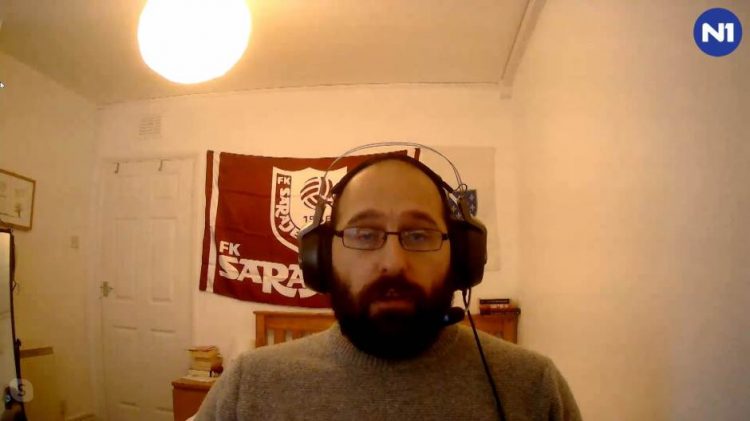
Bosnia and Herzegovina is lagging behind in the process of acquiring COVID-19 vaccines for the population which, apart from damaging public health and the economy, also produces the danger of the virus mutating if it is being spread freely for an extended period of time, microbiologist at the University of Warwick in England, Branko Rihtman, told N1.
“It is sad to see that all responsibility for procuring vaccines has been left to others. We are waiting for something to fall from the sky, instead of being proactive and trying to get vaccines as soon as possible,” he said, giving the example of Kosovo, which also depends on the COVAX mechanism, but authorities there provided half a million Pfizer vaccines directly from the manufacturer on their own initiative.
He argued that there is no reason for Bosnia and Herzegovina, or at least its Federation (FBiH) entity, to do something similar.
“The result of such irresponsibility is the inability to protect at least those who are most vulnerable or health workers who are in the front line and without whom the number of sick and dead would be immeasurably higher. Unfortunately, this will affect both the economy and the possibility of returning to as normal a life as possible, so the consequences of this negligence are catastrophic,” he stressed.
He argued that “not enough has been done” regarding the issue of vaccines or that efforts to procure them have not been presented to the public enough.
“In both cases, we have a negative effect because proactive communication by the responsible authorities results in greater cooperation from people in the implementation of measures. In any case, just as protective equipment and (broken) ventilators were procured, vaccines could also be procured, it is only a matter of will and competency,” he said.
He said that “procrastination” with vaccination produces long-term damage to the economy, the inability to provide health services to people suffering from diseases other than Covid, a generation of children who will not attend school in the usual way.
“To that should be added the great dissatisfaction of the people who will observe the citizens of neighbouring countries as they return to their normal routine after vaccination, while nothing changes in our country,” he said, pointing out that delaying vaccination means the continuation of the spreading of the virus.
“A virus that spreads, that is freely infecting humans, is a virus that can mutate. The longer the virus spreads, the more likely it is that a mutation will occur that will be able to avoid existing vaccines but also the immunity of people who have already been infected with the virus. Imagine a strain of a virus that no one is resistant to. We would go back again in the spring of 2020 in terms of what to expect. Even much more stable and richer countries than Bosnia and Herzegovina could not withstand that,” he said.




Kakvo je tvoje mišljenje o ovome?
Budi prvi koji će ostaviti komentar!